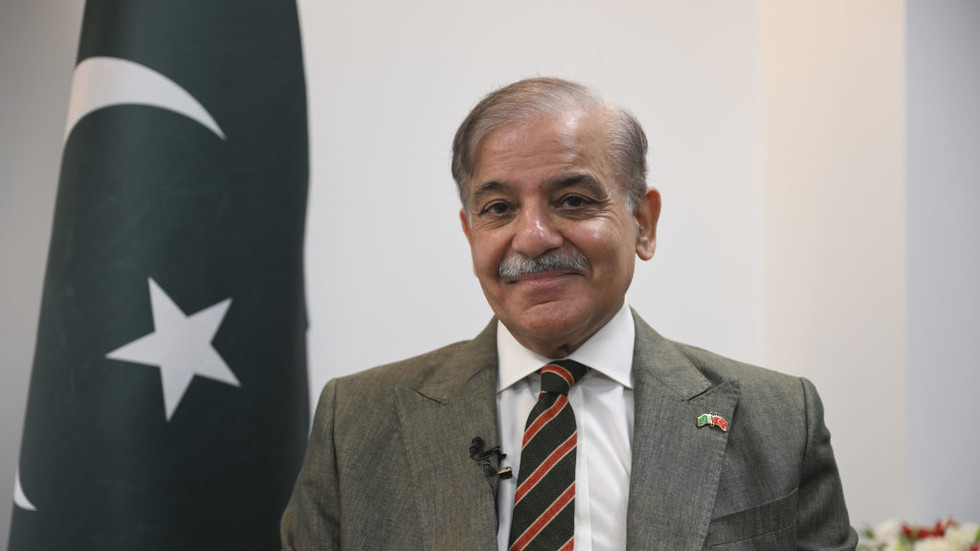
Shehbaz Sharif has been confirmed as the country’s premier weeks after a general election plagued by allegations of vote rigging
Pakistani Prime Minister Shehbaz Sharif. © Getty Images
Pakistan’s newly formed government has elected Shehbaz Sharif as the country’s prime minister following a general election held last month, Sardar Ayaz Sadiq, the speaker for the National Assembly, the lower house of the Pakistani parliament, announced on Sunday.
According to media reports, Shehbaz secured 201 votes in the 336-member National Assembly, prevailing over rival Omar Ayub Khan, who received 92. His new term as premier will be the second for Shehbaz, who heads Pakistan’s Muslim League-Nawaz (PML-N) and is the younger brother of another former premier and PML-N founder, Nawaz Sharif. Shehbaz had served as prime minister until August last year, when the parliament was dissolved in favor of a caretaker government ahead of the election.
Shehbaz Sharif was first elected Pakistan’s prime minister in April 2022, after then premier Imran Khan was ousted by a parliamentary no-confidence vote. Khan is currently jailed on charges of corruption and revealing state secrets, and his party, PTI, was barred from last month’s election. The former premier has repeatedly denied the allegations and claimed the legal cases against him are part of a conspiracy.
According to media reports, Sunday’s voting took place amid protests by Khan’s supporters, who insist the election was a sham. The PTI claims that its members won 177 of 266 contestable seats while running as independents, which under the law, should have allowed them to form a government. However, election authorities claimed they secured only 93 seats, and the government was formed by a coalition including PML-N, the Pakistan People’s Party (PPP) and a group of smaller parties.
READ MORE:
Jailed former leader’s party excluded from coalition despite win
Sharif was the PML-N’s preferred candidate for premier, and under the coalition agreement, the PPP is now expected to elect Asif Ali Zardari Bhutto, its preferred nominee, as president. The presidential vote is due on March 9, followed by Senate elections later this month.




